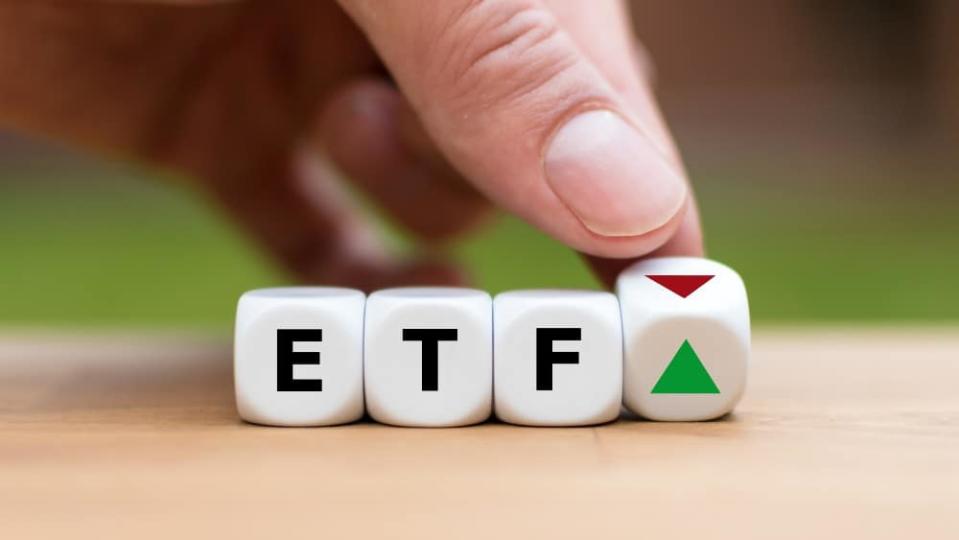2 Canadian ETFs to Buy and Hold Forever in Your TFSA

Written by Amy Legate-Wolfe at The Motley Fool Canada
So, you want some tax-free income, do you? Canadian exchange-traded funds (ETF) can be an excellent option. ETFs are like buying up a portfolio with one click, giving you access to a slew of companies, sectors, and market caps. What’s more, they’re managed by professionals rather than an investor in their spare time.
Couple this with a Tax-Free Savings Account (TFSA), and investors can be in for big returns. But what are the right options? Today, let’s look at the two I would consider first and foremost.
A broad market ETF
A great option to consider first is a broad market ETF. These ETFs track a broad market index, such as the S&P/TSX Composite Index or the FTSE Canada All Cap Index. This gives you exposure to a large number of Canadian companies, which can help to reduce your risk.
If you want a solid choice, then consider iShares Core S&P/TSX Capped Composite Index ETF (TSX:XIC). This ETF tracks the performance of the S&P/TSX Capped Composite Index. This means the ETF holds all the same stocks (or a representative sample) as the index in the same proportion. The S&P/TSX Capped Composite Index is a broad market index that includes most of the large and mid-sized companies listed on the Toronto Stock Exchange (TSX).
The ETF seeks to replicate, net of expenses, the performance of the S&P/TSX Capped Composite Index. By investing in XIC, you’re essentially buying a piece of the entire Canadian stock market. Because XIC tracks a broad market index, it offers diversification across different sectors of the Canadian economy. This helps to reduce risk, as the performance of your investment won’t be tied to the success of any one company or sector.
What’s more, XIC has one of the lowest management expense ratios among Canadian ETFs, currently at 0.00%. This means you keep more of your returns. And XIC is a very liquid ETF, meaning it’s easily bought and sold on the TSX. This is important if you ever need to sell your shares quickly. So, if you’re looking for a long-term investment, XIC can be a good way to grow your wealth over the long term.
A dividend ETF
Now, this is great to get you a lot of exposure quickly. But if you want cash that can be used to reinvest, then a dividend ETF is a strong option as well. These ETFs focus on companies that have a history of paying dividends to shareholders. This can be a good way to generate income from your investments.
In this case, Vanguard Canadian High Dividend Yield ETF (TSX:VDY) is a solid option. This ETF seeks to track the performance of the FTSE Canada High Dividend Yield Index. This means VDY invests in a basket of Canadian companies that tend to pay out a large portion of their profits in dividends. With just a click, this ETF provides exposure to a portfolio of high dividend-yielding Canadian companies. This can be an attractive option for investors seeking income from their investments.
The FTSE Canada High Dividend Yield Index that VDY tracks is market-capitalization-weighted but with a focus on dividend yield. This means companies with a higher proportion of their share price paid out as dividends will have a larger weighting in the index.
Yet VDY offers some diversification across different sectors of the Canadian economy since it holds a basket of companies, but because it focuses on high-dividend payers, it may be more heavily weighted towards certain sectors, like utilities or financials, that are known for their high dividends. It, too, has a low management expense ratio without fees eating up your returns. So, if you’re looking for long-term holds, these two are certainly the first to consider.
The post 2 Canadian ETFs to Buy and Hold Forever in Your TFSA appeared first on The Motley Fool Canada.
Should you invest $1,000 in Vanguard Ftse Canadian High Dividend Yield Index Etf right now?
Before you buy stock in Vanguard Ftse Canadian High Dividend Yield Index Etf, consider this:
The Motley Fool Stock Advisor Canada analyst team just identified what they believe are the 10 best stocks for investors to buy now… and Vanguard Ftse Canadian High Dividend Yield Index Etf wasn’t one of them. The 10 stocks that made the cut could potentially produce monster returns in the coming years.
Consider MercadoLibre, which we first recommended on January 8, 2014 ... if you invested $1,000 in the “eBay of Latin America” at the time of our recommendation, you’d have $17,363.76!*
Stock Advisor Canada provides investors with an easy-to-follow blueprint for success, including guidance on building a portfolio, regular updates from analysts, and two new stock picks each month – one from Canada and one from the U.S. The Stock Advisor Canada service has outperformed the return of S&P/TSX Composite Index by 26 percentage points since 2013*.
See the 10 stocks * Returns as of 6/3/24
More reading
Can You Guess the 10 Most Popular Canadian Stocks? (If You Own Them, You Might Be Losing Out.)
How to Build a Bulletproof Monthly Passive-Income Portfolio in 2024 With Just $25,000
Fool contributor Amy Legate-Wolfe has no position in any of the stocks mentioned. The Motley Fool has no position in any of the stocks mentioned. The Motley Fool has a disclosure policy.
2024

 Yahoo Finance
Yahoo Finance 